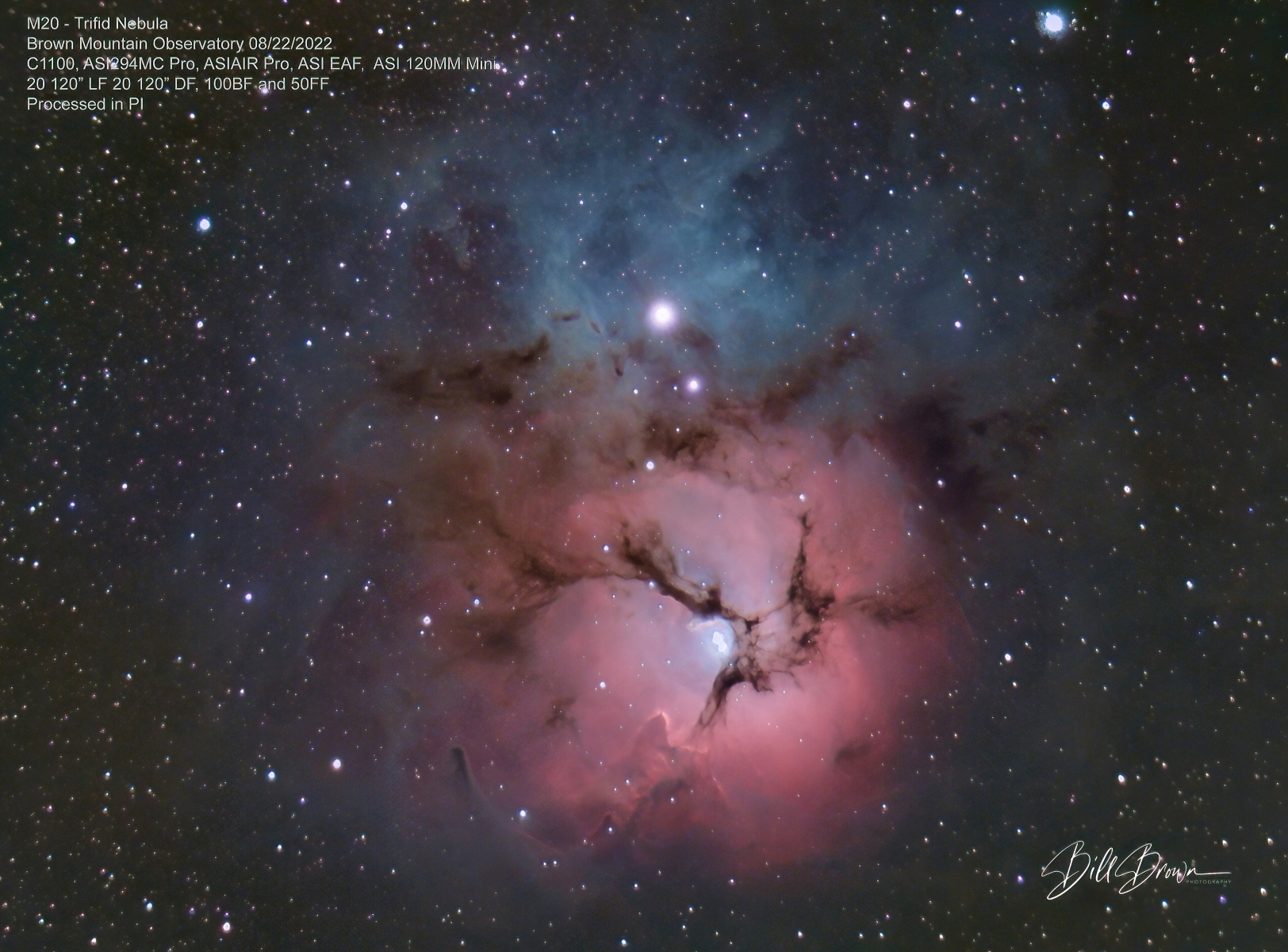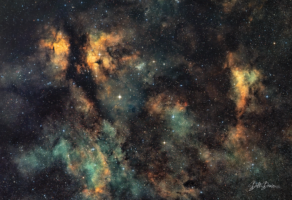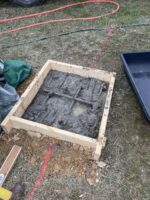The Trifid Nebula (cataloged as Messier 20 or M20 and as NGC 6514) is an H II Region in the north-west of Sagatterius in a star-forming region in the Milky Way’s Scutum-Centaurus Arm. It was discovered by Charles Messier on June 5, 1764. Its name means ‘three-lobe’. The object is an unusual combination of an open cluster of stars an emission nebula (the relatively dense, reddish-pink portion), a reflection nebula (the mainly NNE blue portion), and a dark nebula (the apparent ‘gaps’ in the former that cause the trifurcated appearance, also designated Barnard 85). Viewed through a small telescope, the Trifid Nebula is a bright and peculiar object and is thus a perennial favorite of amateur astronomers.
The most massive star that has formed in this region is HD 164492A, an O7.5III star with a mass more than 20 times the mass of the Sun. This star is surrounded by a cluster of approximately 3100 young stars.


